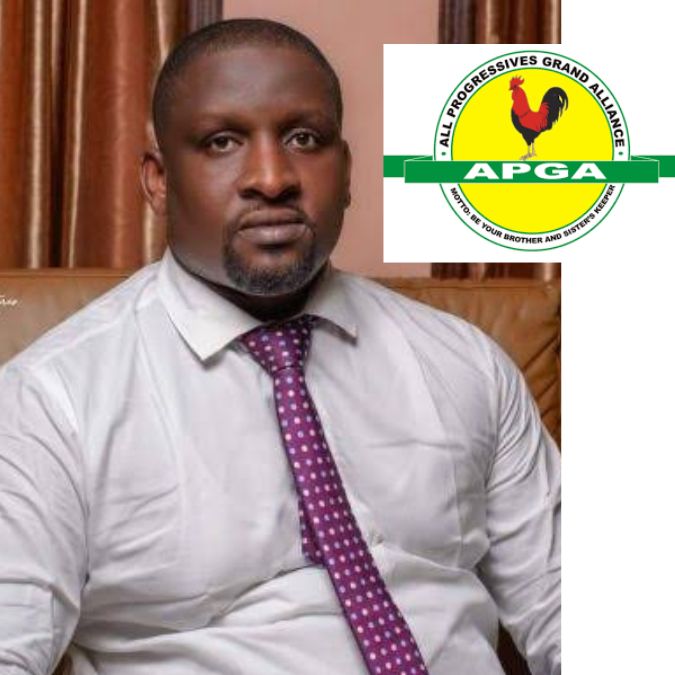REMEDYING NIGERIA’S ECONOMIC WOES REQUIRE A MULTIFACETED APPROACH AS VIEWED BY APGA, NATIONAL CHAIRMAN BARRISTER SLY EZEOKENWA – WRITTEN BY NDUKA ANYANWU, SA (MEDIA).
Nigeria economic recession has been a global headline some month ago. You need to know that the current financial crises facing Nigeria today started showing up in late 2014. This was the time oil price fell below $40 per barrel from around $110 with OPEC standard price. The government planned to devalue the naira in order to meet up with the challenges ahead of the country. The government has to stop importation of rice in early 2015. Then naira was devalued from #156 naira to #186 naira per dollar.
After 2015 general election in Nigeria, Nigeria government moved a policy through Central bank of Nigeria to restrict Foreign Exchange (FOREX) for importation. The domiciliary accounts in Nigerian banks were temporarily suspended and Forex was under control. Nigerians depend on importation; it was so hard to live this time. Most importers have to source for Forex to pay their suppliers. Import duties for most goods were raised by Nigerian Customs Service. This event was not properly monitor by Federal Government in order stabilize the Nigeria currency.
The fall of naira affected the prices of goods in market both locally manufactured or imported. The rate of inflation rose to like 100% which make it difficult for Nigerians to meet basic necessities. Many Businesses cannot avoid to produce and many businesses were folded up. The rate of unemployment keeps raising alarm because many organizations cannot avoid to accommodate salary payment of staff.
Remedying Nigeria’s economic woes requires a multifaceted approach and according to experts, and as viewed by the APGA, NATIONAL CHAIRMAN BARRISTER
SLY EZEOKENW, here are some comprehensive ways to address the issues:
1. Diversification of the Economy: Nigeria’s over-reliance on crude oil has hindered economic growth. Diversifying the economy by investing in other sectors like agriculture, manufacturing, and services can help reduce dependence on oil exports.
2. Strong Anti-Corruption Laws: Implementing and enforcing strict laws to combat corruption can help reduce financial leaks and promote transparency.
3. Economic Policy Direction: The government should establish a clear economic policy direction to guide investments and stimulate growth.
4. Restructuring of Foreign Exchange: Efficient management of foreign exchange can help stabilize the naira and attract foreign investments.
5. Revival of Productive Capacity: Reviving Nigeria’s productive capacity by investing in infrastructure and promoting local industries can help reduce imports and increase exports.
6. National Economic Summit: Hosting a national economic summit to discuss pressing economic issues can help foster unity and promote economic growth.
7. Market-Determined Exchange Rate Regime: Adopting a market-determined exchange rate regime can help stabilize the naira and promote economic growth.
8. Tightening Monetary Policy: Raising the Monetary Policy Rate and addressing excess naira liquidity can help combat inflation.
9. Clarity on Dollar Obligations: Providing clarity on the CBN’s dollar obligations can help boost market confidence.
10. Collaborative Approach: Encouraging a collaborative approach between the government and the private sector can help navigate economic challenges
effectively.
These measures can help address Nigeria’s economic challenges, promote growth, and stabilize the naira.




